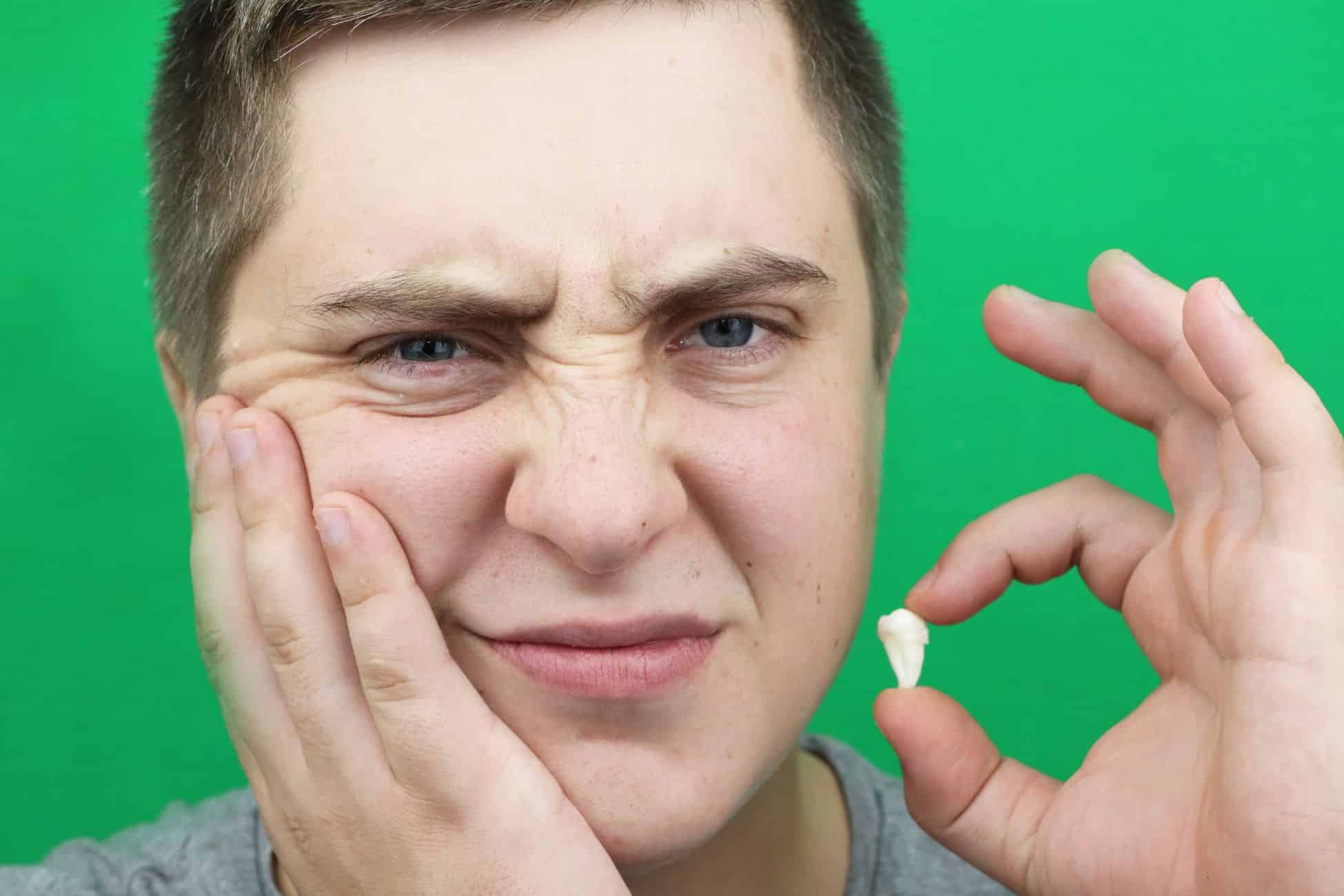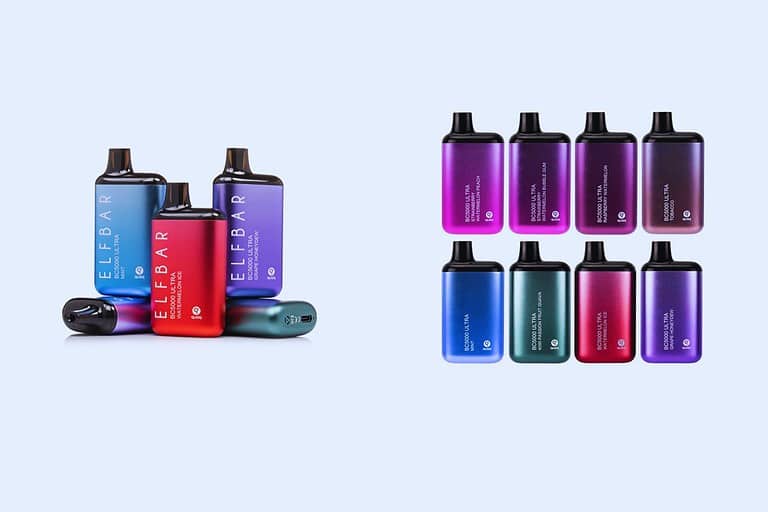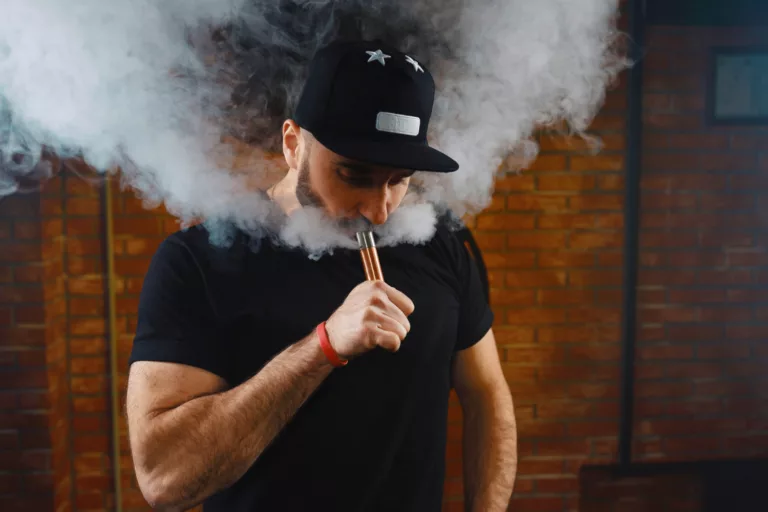When Can I Vape After Wisdom Teeth Removal: Safe Practices and Timelines
After having your wisdom teeth removed, it’s important to follow a specific post-operative care routine to ensure proper healing. You might be wondering about when you can go back to vaping as part of your daily activities. It is generally recommended to abstain from vaping immediately after the surgical removal of wisdom teeth to avoid complications that can negatively affect the healing process.
The primary reason to delay vaping is the risk of developing a painful condition known as dry socket. This occurs when the blood clot at the site of the extraction is dislodged, exposing the underlying bone and nerves. The suction action required when vaping can increase the chance of this complication. Moreover, the chemicals in vapor can also irritate the wound, disrupt healing, and potentially lead to infection.
Healthcare professionals typically advise waiting at least 48 to 72 hours before considering vaping again. However, it’s best to wait until your dentist gives you the green light, as individual healing times can vary. During your recovery, it’s crucial to prioritize your oral health and adhere to your dentist’s instructions for a smooth and swift healing process.
NEW CUSTOMER DISCOUNT
Save 15%
15% OFF YOUR ENTIRE ORDER FOR NEW CUSTOMERS USE CODE WELCOME15!
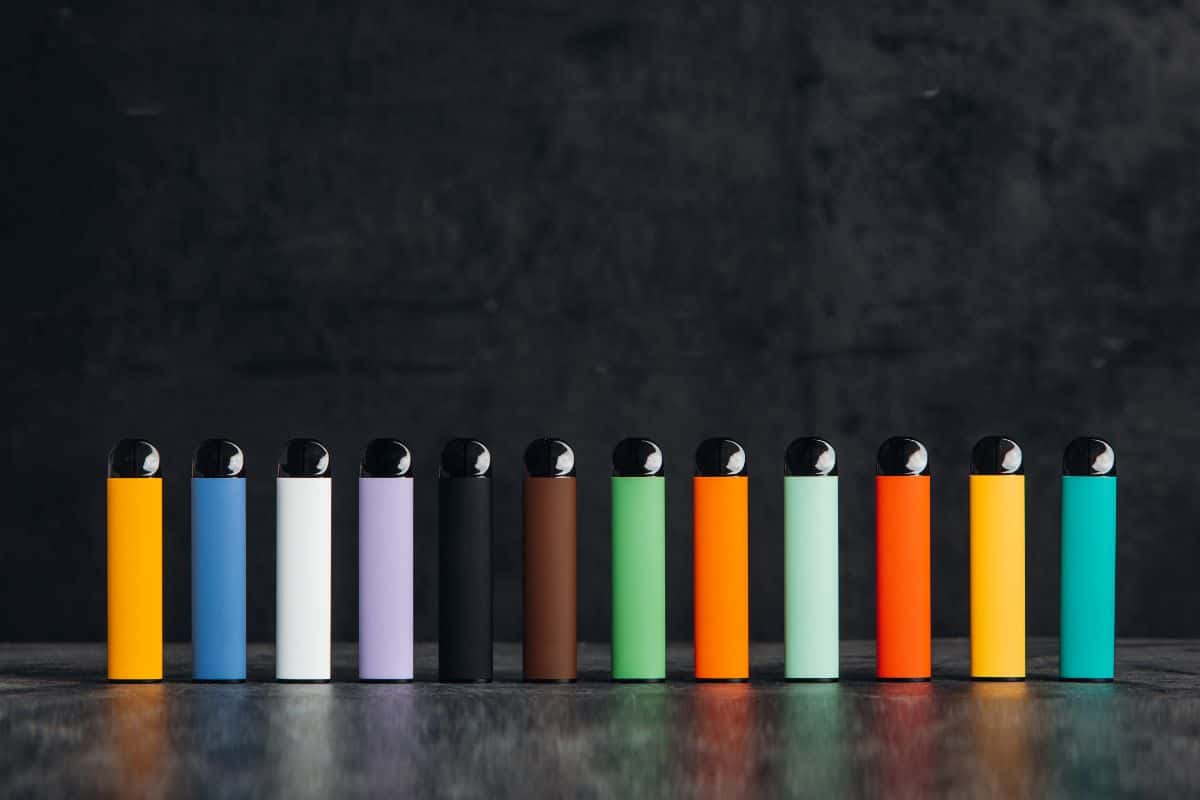
Table of Contents
Understanding Wisdom Teeth Removal
Before you consider when to vape after having your wisdom teeth removed, it’s important to understand the role these teeth play in your oral health and why they are often extracted.
The Role of Wisdom Teeth in Oral Health
Wisdom teeth, or third molars, are the last set of molars to emerge in your mouth, typically appearing in your late teens or early twenties. While they can be a valuable asset to your mouth when healthy and properly aligned, they often cause problems that can impact your oral health. If your wisdom teeth are impacted—meaning they don’t have enough room to emerge or grow properly—they can lead to pain, swelling, and infection.
Common Reasons for Wisdom Tooth Extraction
Here are the primary reasons why you might need a wisdom tooth extraction:
- Impacted Teeth: Impacted wisdom teeth can cause pain, harm to adjacent teeth, and lead to infections.
- Overcrowding: Limited space in your mouth can cause wisdom teeth to crowd or damage neighboring teeth.
- Gum Disease and Cavities: Difficulty cleaning wisdom teeth may contribute to gum disease or cavities, owing to their position in the mouth.
The Vaping and Oral Surgery Connection
When considering vaping after wisdom teeth removal, it’s crucial to understand how this action can impact your oral health and the healing process. Let’s explore the specifics regarding the interaction between vaping and oral tissues during recovery from oral surgery.
How Vaping Affects the Mouth
Vaping exposes your mouth to an aerosol often containing nicotine, flavorings, and other chemicals. Nicotine can reduce blood flow and compromise your body’s ability to heal, which is particularly concerning after oral surgery such as wisdom teeth extraction. In the context of oral health, studies suggest that e-cigarette vapor can negatively affect the regeneration potential of periodontal tissues, which is a vital consideration after you’ve had a procedure.
Vaping Devices and Oral Tissues
Your oral surgeon will typically advise against using a vaping device immediately after surgery. The action of vaping can dislodge the blood clot that forms in the socket, a condition known as dry socket, which can be incredibly painful and delay healing. Furthermore, the vapor from e-cigarettes can interact with oral tissues, potentially causing irritation and compromising oral hygiene post-surgery. It’s important for you to follow the aftercare instructions provided by your oral surgeon to ensure optimal recovery and to avoid complications related to vaping after wisdom teeth removal.
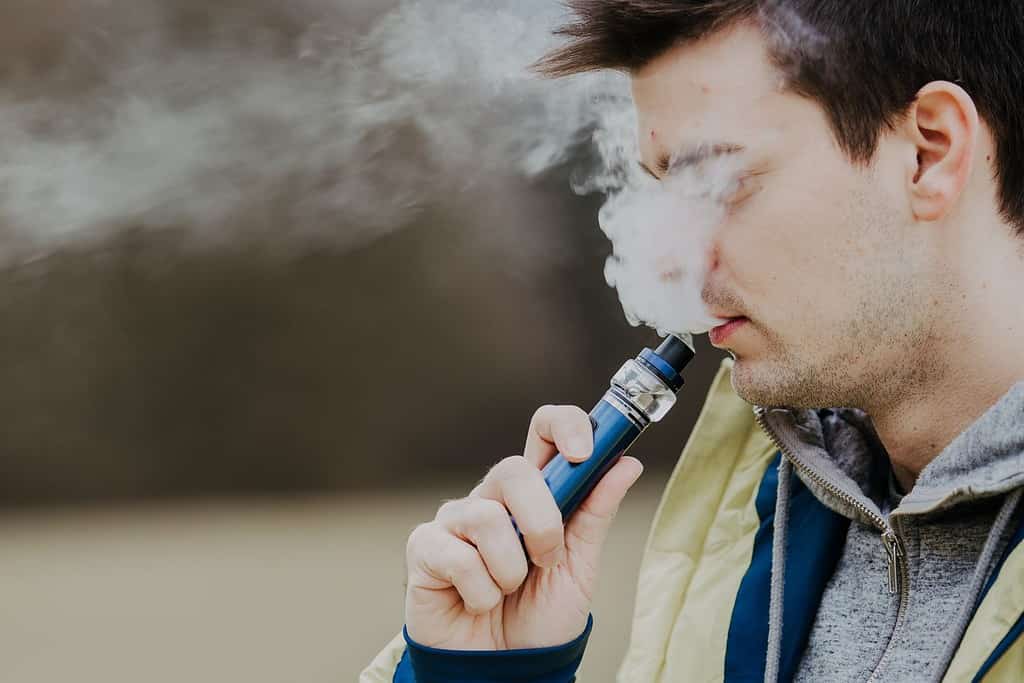
Risks of Vaping After Wisdom Teeth Removal
After having your wisdom teeth removed, you face certain risks when you vape. These risks are primarily associated with complications related to dry socket, infection, and bleeding, all of which can impact the delicate healing process of the extraction sites in your mouth.
Dry Socket and Vaping
Vaping soon after wisdom teeth removal can significantly increase your risk of developing a dry socket. A dry socket, or alveolar osteitis, occurs when the blood clot at the extraction site is dislodged prematurely, exposing the bone and nerves. The suction movement of inhaling from an e-cigarette can dislodge the blood clot necessary for healing, leading to intense pain and potentially delayed healing.
Infection and Vaping Habits
The act of vaping introduces a mixture of vaporized chemicals and heat to the mouth, which can be a concern post-extraction. Not only does this heat contribute to swelling and discomfort, but the chemical composition of the vapor might compromise your mouth’s natural defensive barriers. This potentially increases the risk of infection at the site of your wisdom teeth removal. It’s critical to maintain a clean and stable environment in the mouth to allow for proper recovery and to avoid additional complications.
Bleeding and Blood Clot Complications
Vaping can also impact blood flow and blood vessels in the mouth, exacerbating bleeding at the extraction site. The nicotine found in many e-cigarettes is a vasoconstrictor, which may reduce blood flow that is essential for healing, increasing your chances of complications. It’s important to preserve the initial blood clot post-surgery to prevent excessive bleeding and ensure that the extraction site can heal optimally.
Healing Process and Proper Care
After your wisdom teeth removal, it’s crucial to focus on the healing process and proper care to ensure a speedy recovery. Being cautious and following post-operative guidelines can help you to heal effectively and minimize complications.
Maximizing the Recovery Period
During the recovery period, it is essential that you avoid activities that can disturb the surgical sites. Oral surgery requires that you are gentle with your mouth: this means avoiding drinking through straws and, pertinent to your question, refraining from vaping. The suction motion when vaping can disrupt the blood clot that forms in the socket – a critical part of the healing process.
- Use gauze: Apply pressure by biting down gently on gauze to control any bleeding.
- Take painkillers: Manage discomfort with prescribed painkillers as directed by your dentist or oral surgeon.
Tips to Promote a Speedy Recovery
For a speedy recovery, it is vital to follow all aftercare instructions provided by your healthcare professional.
| Recovery Tip | Description |
|---|---|
| Follow Post-Operative Instructions | Adhere to specific care instructions provided by the oral surgeon or dentist. Take prescribed medications as directed, including pain relievers and antibiotics. |
| Manage Pain and Swelling | Apply an ice pack to the affected area in the first 24 hours. Take recommended pain medications to alleviate discomfort. |
| Maintain Good Oral Hygiene | Gently brush teeth, avoiding the surgical site. Use prescribed mouthwash to reduce the risk of infection. |
| Watch Your Diet | Stick to soft, easy-to-chew foods. Avoid hot, spicy, and acidic foods. Stay hydrated but avoid using straws. |
| Rest and Take It Easy | Allow time for rest and recovery. Avoid strenuous activities and exercise in the initial days following the procedure. |
| Avoid Smoking and Tobacco | Refrain from smoking and using tobacco products, as they can hinder the healing process and increase the risk of complications. |
| Limit Alcohol Consumption | Minimize alcohol intake during the recovery period to support healing and prevent interactions with medications. |
| Use Extra Pillows | Elevate your head while sleeping for the first few nights to help reduce swelling. |
| Attend Follow-Up Appointments | Keep scheduled follow-up appointments with the oral surgeon or dentist for proper healing assessment and addressing concerns. |
| Be Aware of Signs of Complications | Monitor for signs of infection, increased swelling, persistent pain, or unusual discharge. Seek prompt medical attention for any concerns. |
| Complete the Full Recovery Period | Allow sufficient time for a complete recovery before resuming normal activities. |
Keep in mind, while there might be situations where you feel you can return to normal activities, always exercise caution and consult with your oral surgeon or dentist before resuming habits like vaping to ensure it does not negatively impact your recovery process.
Alternatives and Considerations
When considering vaping following a wisdom tooth extraction, it’s important to understand the risks associated with suction, which can dislodge the blood clot vital to healing and potentially lead to a painful condition known as dry socket. This section offers alternative nicotine solutions and strategies to help you through the healing process without compromising your recovery.
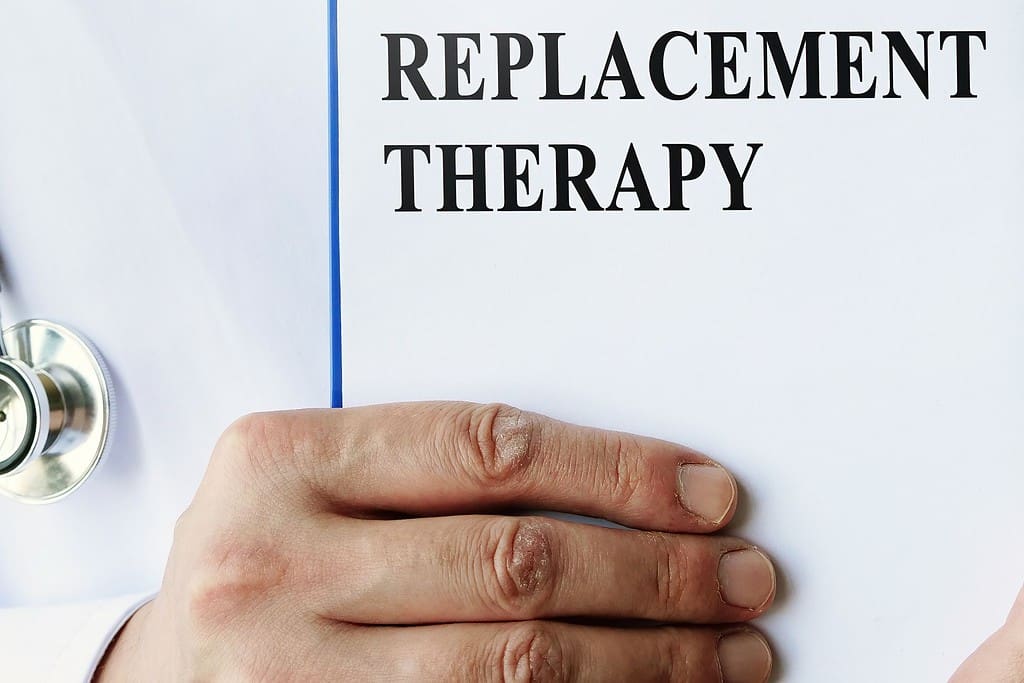
Nicotine Replacement Therapy
Nicotine replacement therapy (NRT) can be a helpful alternative to vaping after you’ve had your wisdom teeth removed. These products do not involve the suction that is potentially harmful to the clotting process essential to oral wound healing. Options include:
- Nicotine patches: Apply to the skin to deliver a steady supply of nicotine without oral engagement.
- Nicotine gum and lozenges: Chewed or sucked without the forceful suction associated with vaping, providing a controlled release of nicotine.
Strategies for Reducing Vape Use
Reducing vape use after wisdom tooth extraction is crucial to prevent dry mouth and irritation that can hinder the healing process. Strategies include:
- Choose a nicotine-free vape juice: If abstaining from a vape is a challenge, consider using nicotine-free vape juice to eliminate nicotine’s potential side effects and withdrawal.
- Prescription medication: Speak with your dentist or a healthcare provider about prescription medications that can aid in your efforts to quit smoking or reduce nicotine intake.
Professional Guidance and Post-Surgery Timeline
After your wisdom teeth removal, a critical recovery period follows. Your healthcare provider will give you precise instructions based on the specifics of your surgery. Adhering to this post-surgery timeline significantly impacts your recovery and the healing of the extraction sites.
Heed Healthcare Professional Advice
Following the removal of your third molars, also known as wisdom teeth, it’s crucial to follow the post-operative care guidelines provided by your dental surgeon or healthcare professional. These guidelines are designed to prevent potential complications such as dry sockets, infections, and damage to surrounding nerves and tissues. Use this period to give your body time to heal without the irritation that can be caused by inhalation and the sucking motion of vaping.

Determining the Safe Period to Resume Vaping
You should wait at least 48 to 72 hours before considering vaping. During this initial recovery phase, your wounds are still at an increased risk for infection and inflammation. Waiting for the green light from your healthcare professional is essential before resuming any kind of smoking or vaping. This precaution helps minimize the chance of complications, which can range from prolonged healing to severe issues that might require further medical attention. Remember that traditional smoking and vaping can both significantly hinder the healing process and contribute to complications like dry sockets and gum disease.
Lifestyle Considerations for Oral Surgery Patients
After undergoing wisdom teeth surgery, it’s crucial to consider how your lifestyle choices can affect the recovery process. Certain activities, especially vaping, can have significant implications on healing and should be approached with caution.
Impact of Lifestyle Choices on Oral Recovery
When you recover from wisdom teeth removal, understanding the impact of lifestyle choices, such as the use of tobacco products, is essential. Vaping, in particular, can contribute to negative pressure in your mouth, which may lead to a painful condition known as dry socket or alveolar osteitis. This occurs when the blood clot at the site of the tooth extraction is dislodged, exposing the underlying bone and nerves.
- Vaping: After surgery, it’s advisable to avoid vaping. The suction action required can dislodge the blood clot at the extraction site and delay healing. Plus, many vaping solutions contain formaldehyde and other chemicals that could impede your immune system’s ability to fight infections.
- Alcohol Consumption: It’s important to steer clear of alcohol during the recovery process. Alcohol can not only interact with prescribed medication, potentially leading to complications, but it also affects homeostasis and impairs the body’s healing mechanisms.
- General Anesthesia Aftercare: Following general anesthesia, you should rest and avoid any activities that can disturb your recuperation, as your body regains its balance and eliminates the anesthesia from your system.
- Oral Hygiene: Maintaining proper oral hygiene is critical, but you must be gentle around the incision sites to avoid irritation or infection. Follow the oral surgeon’s instructions carefully regarding rinsing and brushing.
Your recovery is influenced by how well you manage these factors, helping ensure the health and proper alignment of your teeth post-surgery. Listen to your body and avoid any actions that could introduce bacteria or cause strain to the area, disrupting the natural healing process or leading to complications. Remember, your recovery speed and success largely depend on adhering to the recommended guidelines and being mindful of your lifestyle choices after wisdom tooth removal.
Browse popular vape collections:
- Nicotine Disposables
- 2000 Puff Nicotine Disposable Vapes
- 2500 Puff Nicotine Disposable Vapes
- 5000 Puff Nicotine Disposable Vapes
- 6000 Puff Disposable Nicotine Vapes
- 7000 Puff Nicotine Disposable Vapes
- Disposable Vape Deals
- Best Vape Brands
- 8000 Puff Nicotine Disposable Vapes
- 9000 Puff Nicotine Disposable Vapes
- 5% Nicotine Disposable Vapes
- Rechargeable Nicotine Disposable Vapes
- Vape Coils
- Dab Wax Pens
- Dab Wax Pen Battery
- Yocan Vapes
- Vape Cases
Frequently Asked Questions
After having your wisdom teeth removed, it’s crucial to follow post-operative care guidelines to ensure proper healing. Vaping can interfere with this process, so it’s important to understand the appropriate time to resume such activities.
How long should I wait to vape following a wisdom teeth extraction?
You should wait at least 48 hours before considering vaping to avoid disrupting the blood clot that forms in the socket. This clot is a critical part of the healing process.
What are the risks of vaping too soon after a tooth extraction?
Vaping too soon increases the risk of complications such as dry socket and infection due to the suction action and the chemicals present in the vapor.
Is it safe to vape through the nose after dental surgery?
Vaping through the nose is not recommended as it can still lead to inhaling harmful substances that may affect the healing process of your sockets.
What precautions should I take if I choose to vape after a wisdom tooth removal?
If you choose to vape after extraction, ensure to do so gently to reduce suction and consider using nicotine-free options to lessen irritation to the gums.
What is dry socket and how can vaping after wisdom teeth removal contribute to it?
Dry socket is a painful condition where the blood clot at the site of extraction is dislodged, exposing bone and nerves. The suction motion of vaping can increase the risk of developing dry socket.
Are there any alternatives to vaping that I can utilize after my wisdom teeth are removed?
Consider nicotine replacement therapies such as patches or lozenges that do not involve sucking motions, thus reducing the risk of complications post-surgery.

